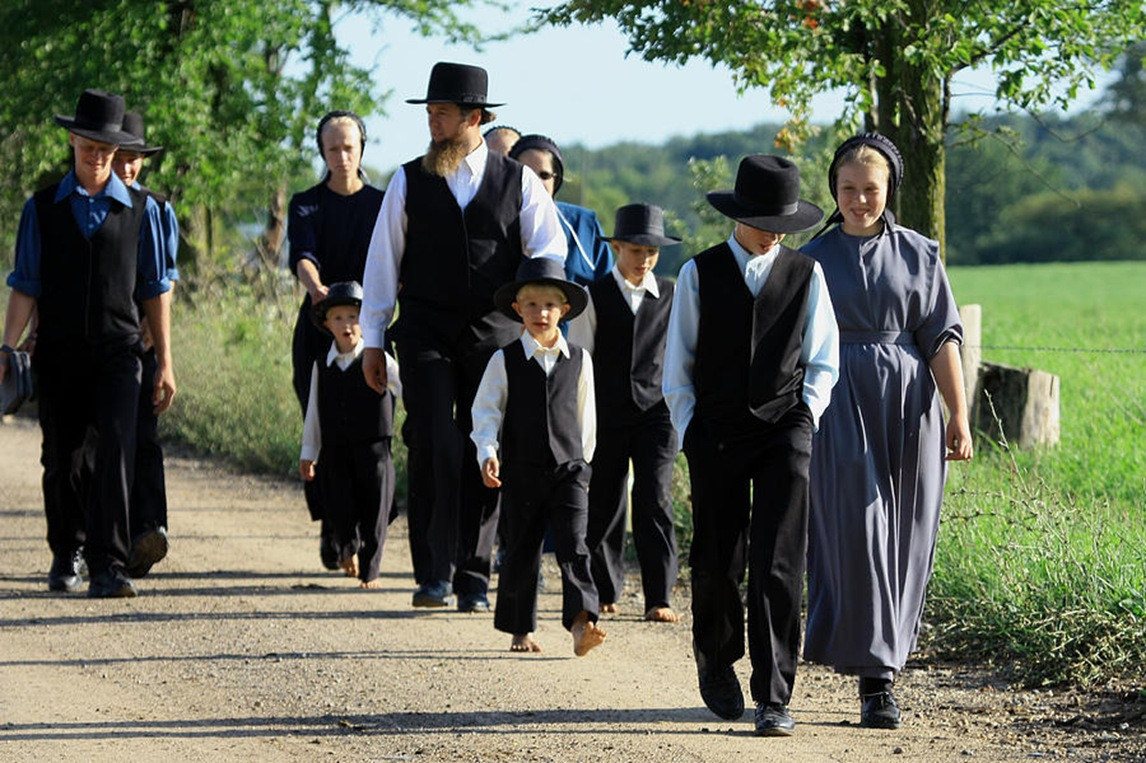
Scientists Reveal Why Amish Children Are Immune to Allergies & Asthma
Studies in Sweden have determined that kids raised on dairy farms are considerably more resistant to allergies then those who live elsewhere, including nearby rural areas without non-dairy farms. This wasn’t the only study displaying this phenomena.
An earlier German study discovered that mice breathing in microbes from replicated farm air had fewer allergies, and especially important was that their offspring benefited with stronger immune systems that had matured.
This maturity helps develop the intelligence for the immune system to discriminate among antigens and avoid creating excessive inflammatory responses unnecessarily, which is the basic description of an allergic response.
September 11, 2015 | Source: Peaceful Warriors | by
Studies in Sweden have determined that kids raised on dairy farms are considerably more resistant to allergies then those who live elsewhere, including nearby rural areas without non-dairy farms. This wasn’t the only study displaying this phenomena.
An earlier German study discovered that mice breathing in microbes from replicated farm air had fewer allergies, and especially important was that their offspring benefited with stronger immune systems that had matured.
This maturity helps develop the intelligence for the immune system to discriminate among antigens and avoid creating excessive inflammatory responses unnecessarily, which is the basic description of an allergic response.
Allergies and asthma have been on the rise in the West over the past few decades, especially among younger children. In addition to vaccinations and our immersion into chemicals that permeate a fetus from mothers’ exposures to them, there has been conjecture that our obsession for cleanliness is a contributing factor.
The argument posits that exposure to dirt and its natural microbes helps an immune system develop in a young child, so playing in dirt is a good thing. This theory is known as the “hygiene hypothesis” where too much hygiene or cleanliness for babies and toddlers disables development of a mature immune system.
TESTING THE HYGIENE HYPOTHESIS
Recently, researchers conducted an epidemiological study at the University of Gothenburg, located in Sweden’s second largest city, Gothenburg. They monitored children’s health from birth to age three in a large nearby rural district. Around half of them lived on dairy farms while the rest did not.
Those who lived on dairy farms tended to be allergy free, while the others were 10 times more prone to developing allergies (http://sahlgrenska.gu.se).
The study also discovered that children with an allergic disease between the ages of 18 and 36 months had a higher percentage of immature B-cells in their blood circulation at birth and during the first month of life. B-lymphocytes (B-cells) are an essential component of the immune response that remembers invaders that have been terminated by T-cells to offer future immunity to them.
Produced in the bone marrow, B-cells migrate to the spleen and other secondary lymph tissues where theymature and differentiate into immune specific B-cells. The key word is mature. The children plagued with allergies or asthma had immature B-cells. But what about the mothers transference of immunity to newborns?
Researchers have discovered that mothers who lived on farms transferred their immunity to children, as the children born from farm-site mothers were less allergy- and asthma-prone even after leaving the farm.
Cows transfer immunity to calves with their first food, early neonatal milk that’s even more beneficial than normally produced raw milk. That’s where the miracle super food powdered colostrum comes from.
